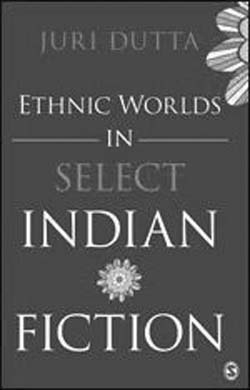Ethnography can be defined as the systematic study of people and cultures—an exploration of cultural phenomena from the point of view of the subject of the study. By this definition, a large amount of literature that we read is indeed ethnographic and diverse, even though it may only be a documentation instead of a faithful and authentic representation. Juri Dutta’s Ethnic Worlds in Select Indian Fiction claims to be the ‘first of its kind’ study of ethnographic fiction from ‘different regional languages of India’. Yet, as the text expands, it ends up being a study of primarily writers from the North East region—Yeshee Dorjee Thongchi, Rong Bong Terang, Lummer Dai, Sishuram Pegu—with a few ‘others’ thrown in from outside the region—Narayan, Mahasweta Devi, Pratibha Ray and Maitrayi Pushpa. The latter category are obviously those writers who also write about tribal/ ethinic cultures, even though they may or may not be tribal themselves. And Dutta undertakes her study as a comparative one, although the points of comparison have no connectivity with each other.
August 2015, volume 39, No 8

